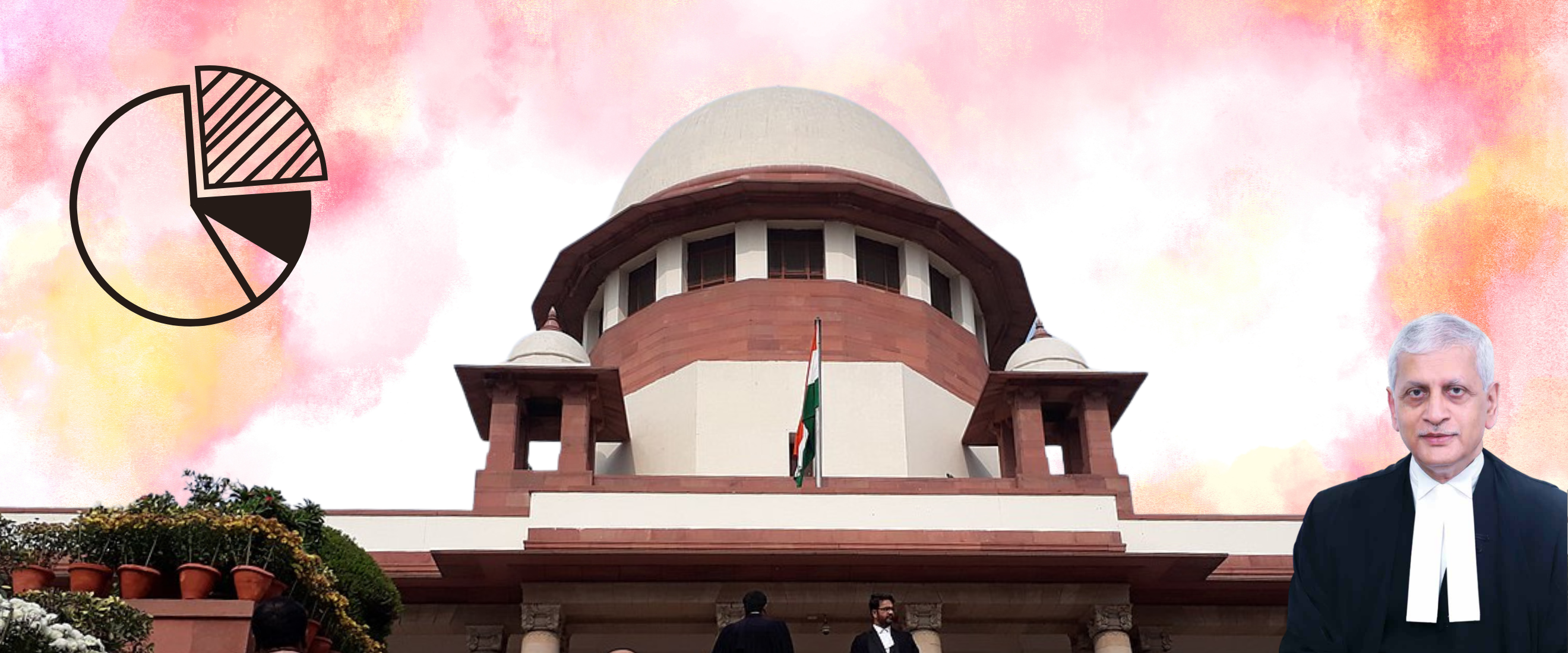Analysis
Chief Justice U.U. Lalit’s Tenure in Numbers
SCO assesses the numerical highlights of CJI Lalit’s 8.25-year tenure at the Supreme Court.

CJI U.U. Lalit retires on November 8th, 2022. His tenure as a Supreme Judge began when he was elevated directly from the Bar to the Bench on August 27th, 2022. He is the second direct Bar appointee to become the Chief Justice of India after the 13th Chief Justice S.M. Sikri who retired on April 25th, 1973. Across his 8.25-year at the Supreme Court, including 2.5 months as the Chief Justice of India, he has impacted over 1,000 cases, writing over a third of his Judgments criminal law cases. SCO assesses his tenure compared to the other sitting Judges of the top Court.
Figure 1 depicts the total expected tenure of all the sitting Supreme Court Judges at the time of CJI Lalit’s retirement. His 8.25-year tenure at the Supreme Court is well above the average SC Judge tenure of 5.27 years and median tenure length of 5 years. However, his CJI tenure of 2.5 months falls well below the average CJI tenure of 1.5 years. Despite his short CJI tenure, CJI Lalit introduced several notable reforms at the Supreme Court, reviving Constitution Benches after a year-long hiatus and changing the system for the listing and mentioning of cases.
How Many Judgments Did CJI Lalit Author?
Figure 2 compares CJI Lalit’s rate of writing Judgments to the other sitting Judges in the Supreme Court. CJI Lalit has a Judgment authorship rate of 36.48 Judgments per year with a total of 301 Judgments across 8.25 years. This makes him the third most prolific Judgment author at the SC among his sitting contemporaries.
CJI Lalit’s Impact As a Judge
Figure 3 depicts the total number of cases impacted by CJI Lalit. We assess his impact by considering the total of Judgments he has authored alongside the total number of Benches he has been part of. CJI Lalit, across his 8.25-year tenure at the Supreme Court, has authored 301 Judgments and has been a part of 1013 Benches—he has authored Judgments in 29.71% of the Benches he has been a part of.
CJI Lalit’s background as a criminal law advocate reflects heavily in the Judgments he has authored. Out of the 301 Judgments he authored, 119 are in criminal law cases—over a third of his total Judgments. Service matters stand second numbering 34 while civil law matters stand third with 22 Judgments.
In Anokhilal v State of MP (2019), CJI Lalit (then Justice Lalit) authored the majority opinion which held that the accused in cases where the death penalty is a possible punishment must be given ‘full opportunity’ at every stage of the trial to plead their case. Mr. Anokhilal, the accused did not have representation of his own and was provided with an advocate to represent him by the Legal Services Authority. However, the Trial Court convicted Mr. Anokhilal without giving his advocate sufficient time to prepare. Consequently, the Supreme Court set aside the conviction and directed the case to be heard afresh.
Read more about CJI Lalit’s notable Judgments here.
